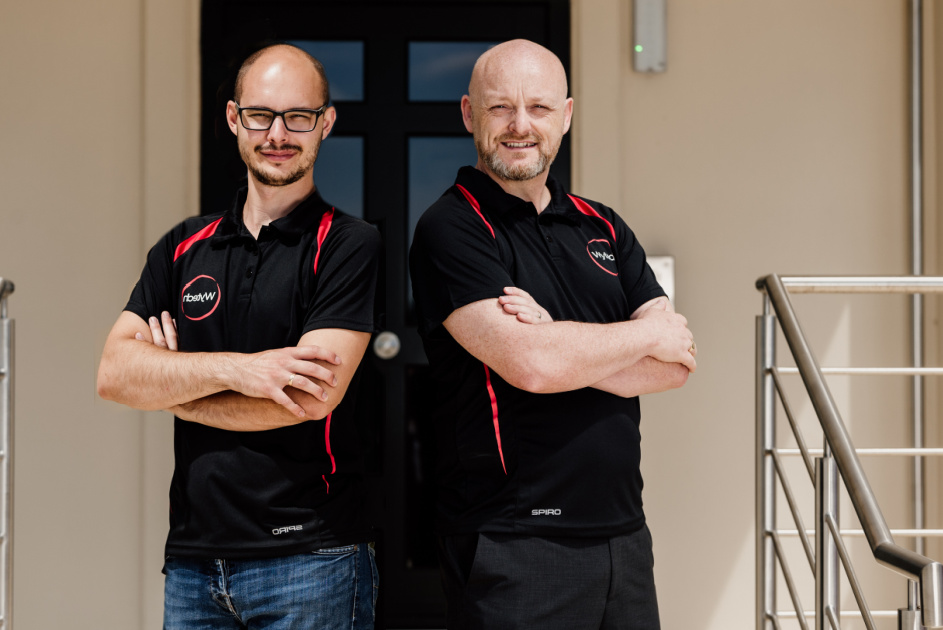
Ashbourne Triathlon 2022
Mark and Tom take on the 2022 Ashbourne Triathlon
On May 22nd 2022 our MD, Mark Jones and Operations Manager, Thomas Ward, took part in the Ashbourne Triathlon.
‘Triathlon is a multi-discipline event where people compete against the clock and each other. Swimming, cycling and running with no break except for the transition (this is a quick pit stop to change for the next discipline).’
This was a first for both Mark and Thomas, having never competed in an event like this before. This article delves into their thoughts and feelings about the event, preparations, participation and crossing the final finish line.
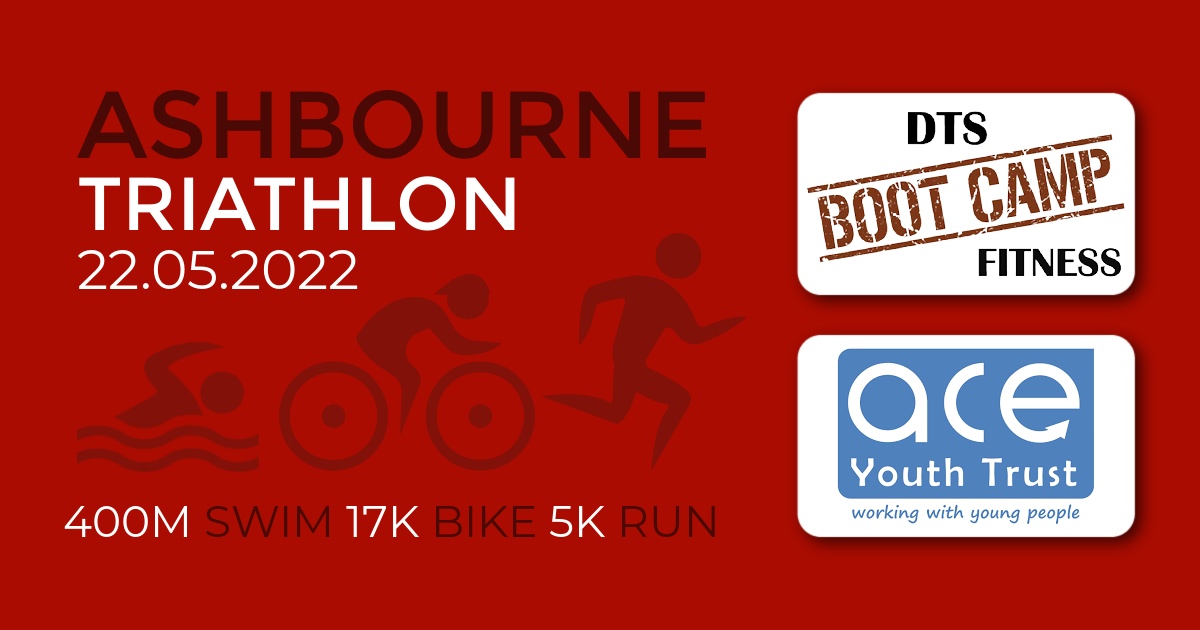
Let’s find out more about how Mark and Thomas got on during their first-ever triathlon event.
When did you decide to participate in the Ashbourne triathlon and why?
Mark: This was solely down to a comment from my Boot Camp instructor, Amanda Foster, who owns DTS Bootcamp. Amanda runs these fitness sessions at Ednaston Park on a purpose-built course. At one of the sessions I attended, she mentioned the Ashbourne Triathlon and wanted a DTS team to represent the boot camp. It was interesting that I damaged my knee walking down the stairs on the day I decided to participate. This event’s frustration spurred me to join up and see my capabilities.
Thomas: Our boot camp instructor, Amanda Foster, first brought it to my attention. As time passed, various members of our boot camp team signed up for the event, and I considered participating. I remember thinking it was something I could put off doing and potentially never do, or I could take the bull by the horns and participate. I signed up and never looked back. I wanted to do it to 1. Raise money for the youth trust fund and their fantastic work, and 2. To prove to myself that I could do it.
For events like this, preparation is key. What did you do to train and prepare for the triathlon?
Mark: Preparation, now then. Apart from taking direct advice from Amanda and Adam, I also downloaded several triathlon sprint plans. However, I wasn’t prepared for my body to put a spanner in the works. I caught Covid badly at the start of my preparation which knocked me out for a few weeks. After recovering, I went out for my birthday with the family and played football with the grandkids. I kicked the football just in front of a branch stuck in the ground that I couldn’t see, and when I kicked it, the branch went into my leg. It didn’t seem too bad at first but quickly developed into cellulitis, which was extremely painful and meant I had to stay off my feet for a few weeks. These setbacks, coupled with the fact that I hadn’t swam in anger or ridden a bicycle for many years, and I can safely say that my preparation wasn’t the best. I bought a bike just before I caught Covid, which meant limited training before the triathlon, and I only managed to swim four times before the event too.
Thomas: Amanda’s regular boot camp sessions were a crucial factor in this, and additionally, as a team, we did extra weekly training. We would meet on a Sunday and do the same cycle route we would be doing in the triathlon. Then, as we got closer to the date, we would do the cycle route and the running route straight after for 3K at first, and then we would do the entire 5K. This training not only helped to build my confidence but also my stamina and strength. It also guided me on how my times would look for each segment, giving me a benchmark to work at beating. I’ll let you into a little secret; I only practised swimming once as I didn’t feel that was what needed the most work. I know you would usually front crawl, but breaststroke got me done in 10 minutes, which I was happy with for my first triathlon.
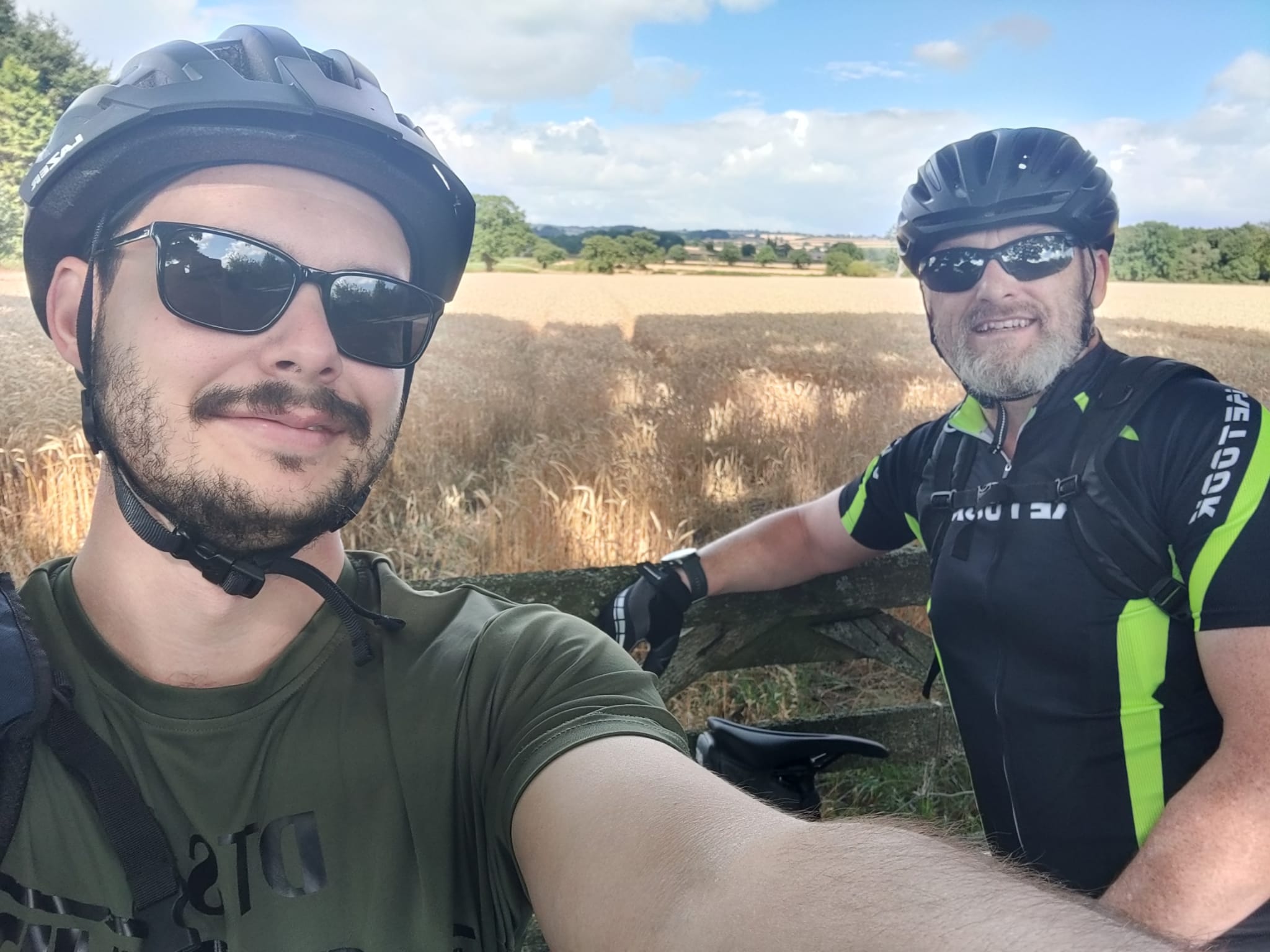
How did you feel on the morning of the event, knowing that the day was finally here?
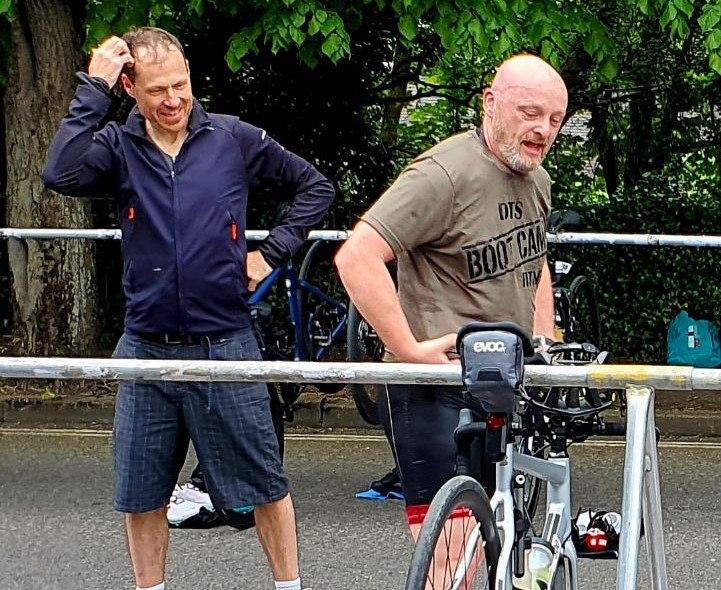
Mark: I felt great, if I’m honest. It helped to do this competition with people I knew, and as I picked Tom up on the morning of the event, we could talk out how we were feeling on the way there.
Thomas: I felt good. The anticipation to get started and get it underway was high for me. Having not done all three together at that point, I didn’t know how it all worked. After I had racked the bike up, the numbers all set up, tri suit on, I felt ready and eager to get on with it.
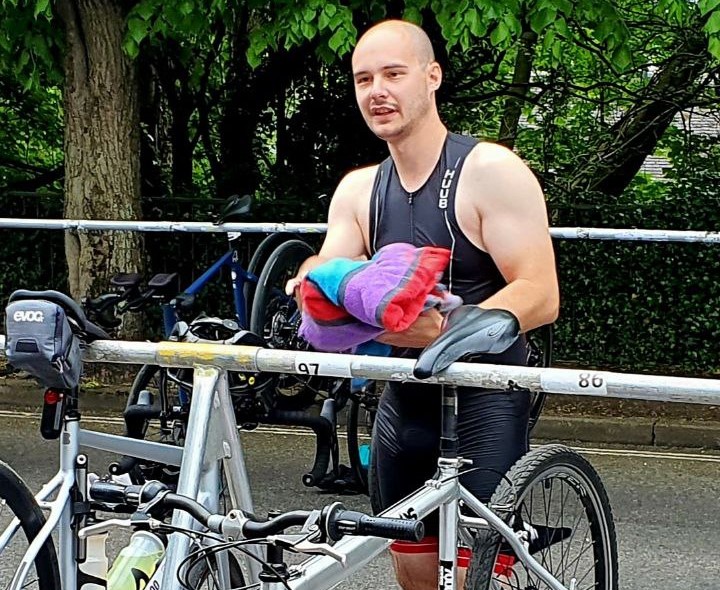
Talk us through the event itself and give us an insight as to what was going through your head during each segment of the triathlon.
Mark: Well, we turned up early and parked up, took our gear, bikes, and ourselves to the check-in point, and registered for the day. We took our bikes to the bike transition point and set everything up. The marshalls were very helpful indeed. As soon as we mentioned that this was our first event of any kind, they helped us pick a spot for the bikes and talked us through setting up the transition zone to make changing quicker.
Tom and I were starting the swim at the same time, so we went to the pool 5 minutes before our start time and waited. Just before the whistle was blown, we jumped into the water. I remember it being warm as I was wearing my tri suit for the first time in a pool. I had not trained front crawl before the race as I was not very mobile with my neck, so I focussed on breaststroke; however, when the whistle blew, I panicked and shot off at some pace doing front crawl.
About 3/4s of the way down the lane on the first length, I had this overwhelming feeling that I could not breathe and that my chest was constricted. Any attempt at breathing felt like no air was getting into my lungs. I grabbed the side and tried to catch my breath, but nothing happened, no respite, and I started to panic as though I was drowning. I reached the deep end and stopped to catch my breath, but nothing happened. I considered getting out of the pool and quitting as the panic rose. It felt as though I was drowning. My mind initially gave up. However, this voice in my head told me to keep going, that it would be pointless to DNF on the first length of the swim. I steadied myself for what seemed like such a long time (probably a few seconds) and thought that if I could get back to the shallow end, I would stand up and see how I felt.
I took in as much air as possible and set off underwater (because, at this point, it didn’t matter) until I could touch the bottom of the pool. I stood up and tried to take in more air, but it had no effect on me. Then, I could process what was happening and realised that my tri suit was compressing my chest. Schoolboy error and lack of preparation. I undid the zip on the front of my tri suit and could breathe freely again. I managed to control my panic and mind and, in that moment, fixed the problem. I swam the rest of the distance (plus 2 additional lengths as my brain had switched off) without much of a problem, just steady breaststrokes. I was conscious that every lap was one lap left and that once I had gotten out of the pool, I knew that I could cycle and, if necessary, walk the run to the finish line.
Side note: There is an entertaining video of me on the pool to bike transition where you can see how exhausted and oxygen-deprived I was. It makes for an interesting watch back.
The cycle phase went well, and perversely the experience I’d had in the pool blocked out the issues I had climbing the hills. I managed a PR on the cycle with no stops at all. A first for me! I did nearly come off the bike on the home stretch when I went around a roundabout a bit too fast, put my foot down and contacted the floor. The bike’s rear jumped, but I managed to salvage it and complete the cycle ride.
The run was ok as runs go. It was 2.5K uphill and 2.5K downhill on the Tissington trail. I ran it with a boot camp colleague, and we helped each other through that phase and over the line. The exhilaration and adrenaline pump I had when I crossed the finish line amongst the DTS crew will stay with me for an exceptionally long time.
Thomas: Before I started, I knew I wanted to push myself with the swim but also ignore what was happening around me and pace myself. We started early and were the first wave in the pool. I realised that I was quicker than nearly all around me, even though I was doing breaststroke and some were doing front crawl. That put my mind at ease, and I kept going.
Out of the first group of people, I was second out of the pool and onto the bike. That was a great feeling. Some of our boot camp team members were on the side and cheered me on, which also gave me a boost. I was relatively slow moving from the swim to the bike, and when I arrived at the transition area, getting my head around which order to change took me a while. I tried to put my helmet on first before I had put my t-shirt on. Without this, I could have cut that transition time down, but I know for the next time and quickly refocussed on the cycle ahead.
Cycling was something I had practised more than any other discipline, so I was setting mini goals in my head and motivating myself. I wasn’t using any fancy bike; it was my hardtail mountain bike that I had put hybrid tyres on. I felt I had to work harder than people using a road bike; the drag was more, and the gearing made it more challenging. I couldn’t build up extra pace going downhill, and I couldn’t maintain the speeds on the flat as well as I knew that some of our teammates could do.
I spent some time cycling around wishing I had a better bike to get more pace, I can get competitive, and I knew I could gain a further advantage. I feel I could have shaved 5-10 mins of my ride pace if I had a better bike. This brings me back to the mental side of it. I knew I had to push as hard as possible to keep people behind me. My goal was simple: to complete the whole cycle with no one passing me, I achieved that, and that was a nice feeling. As I came in and dismounted, I had an energy gel and then got straight to the Tissington trail for the run. My legs felt strange, but nothing I wasn’t used to after cycling for years.
For the run, I went steady and mainly jogged. The route up was hard. I ran through the tunnel, grabbed a drink from the kind lady passing them out, supped it, and carried on, motivated by them saying I was the second through. I was on the final stint, and I was still second. I found it quite lonely; it is surprising how having someone to race alongside helps with your motivation and competition.
Some of the way up, I would pace myself and do a quick walk to build myself up, but then I could see the third person coming up behind me and would spur me to carry on, though I knew they were seasoned runners. Once I hit the halfway mark, it was time to turn around. At that point, my goal was to not stop all the way back, to keep the pace and work through the pain. On the way back, I passed people I wanted to keep behind me, but we also motivated each other to keep going.
I did manage to keep the pace and didn’t stop. In my head, I was saying to myself, you can do it. Each gate along the way was another milestone, and I was closer and closer to the end. Once I returned to the tunnel, I felt great. I felt like I had a boost of energy and motivation to pick up the pace further and carry myself to the line.
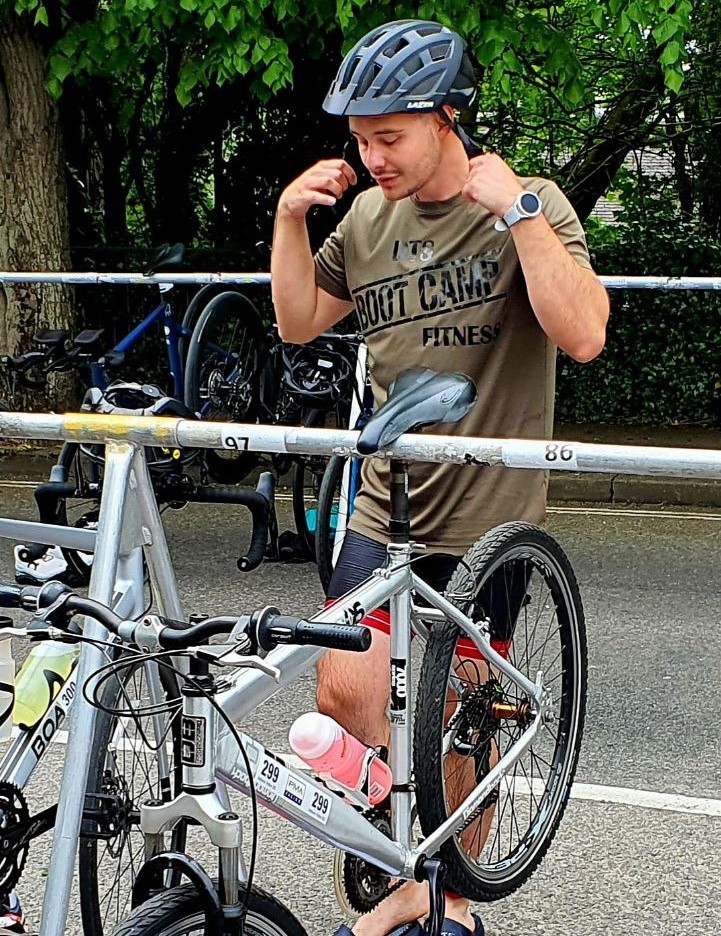
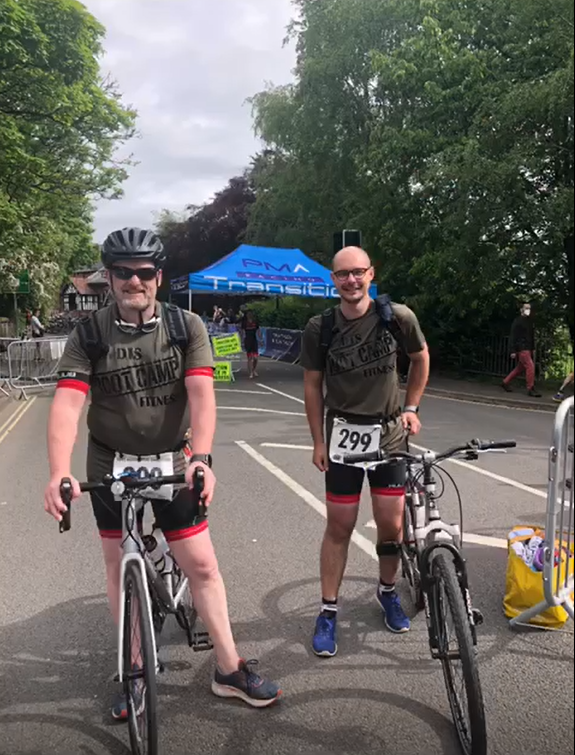
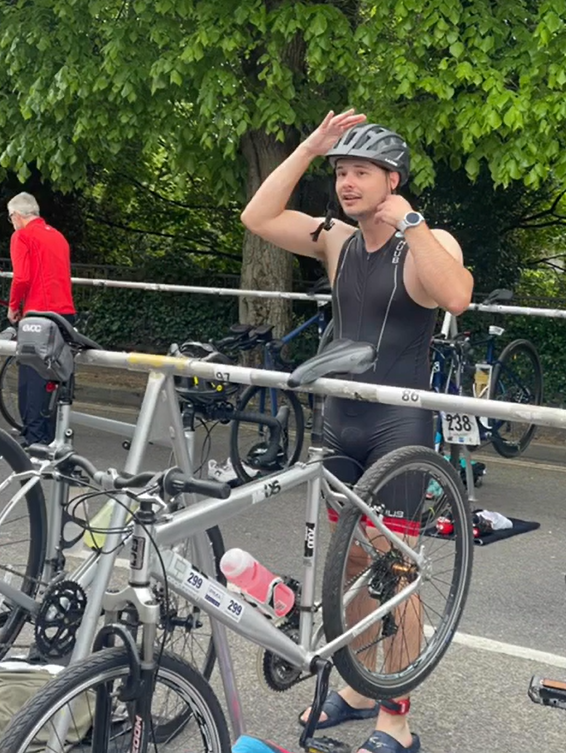
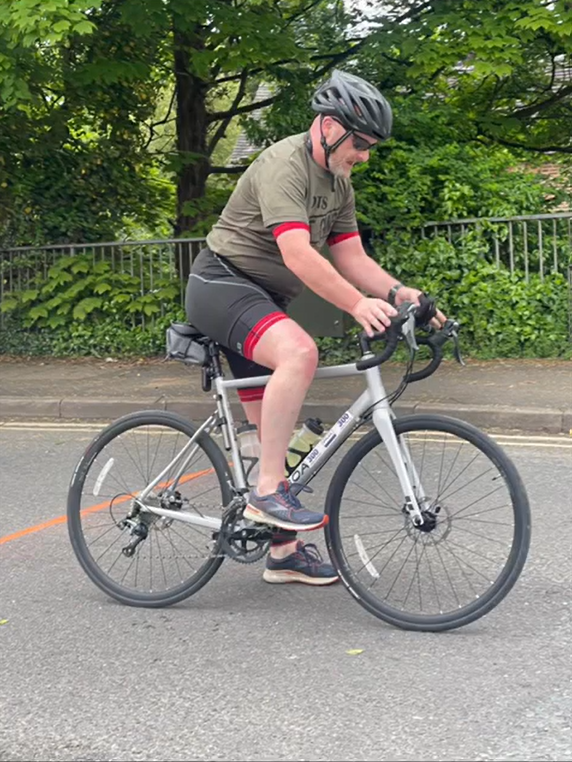
Which part of the triathlon is your strongest, which was your weakest, and why?
Mark: I felt that all of the events were weak for me prior to the event. I am carrying some weight that makes running distance difficult. I hadn’t cycled for years except for a few practice runs of the route before the event, and swimming hadn’t been tackled for a long time. I learned a lot from the experience. I found that I enjoyed all aspects of the triathlon, including the transitions, and I have a lot to work on.
Thomas: I don’t think it was a case of weak; all aspects of the event felt strong to me. However, I do think I could improve on the run; not slowing down for the duration of the run would be the goal. The swim could only potentially be improved by learning to front crawl. I never set out to do this to become a professional triathlete. I did it to prove to myself I could do it, build fitness, feel good and hopefully set myself a benchmark to improve next time. I beat all my previous practice times. The strongest out of all three will always be the cycling for me.
So you did it! You completed your first triathlon! How did it feel to get over that finish line?
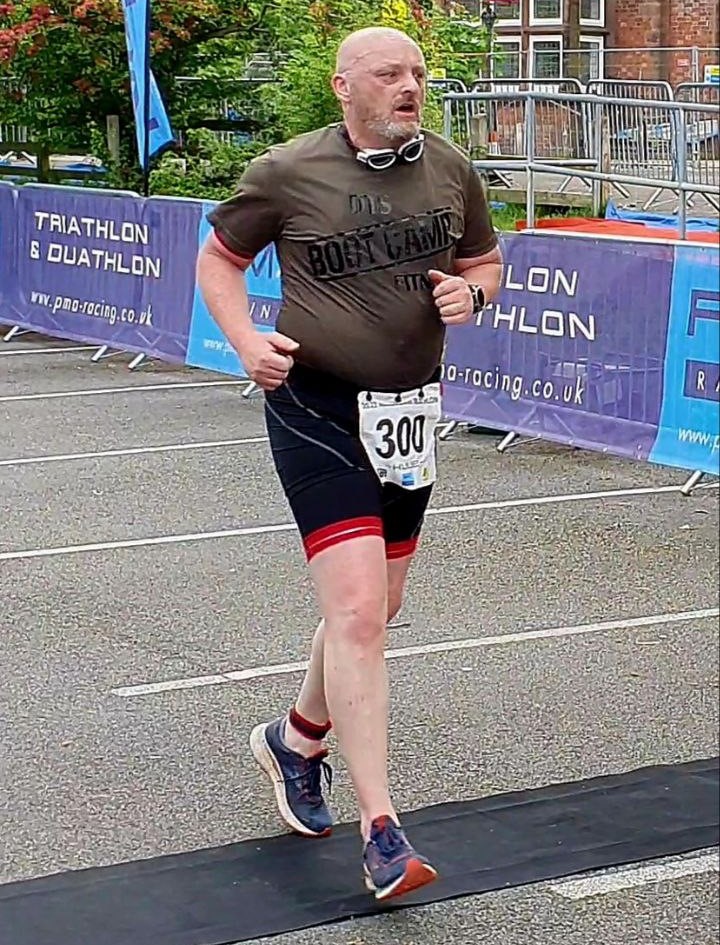
Mark: Yes, and it was a fantastic feeling to cross the finish line even though I looked a mess with my swimming goggles around my neck! Placing did not matter to me; I simply wanted to complete the event, especially after the issues I’d had with the swim. Getting across that final finish line with my DTS colleague was also a great feeling, and having the rest of the team cheer us on, including people I didn’t know. I was hooked!
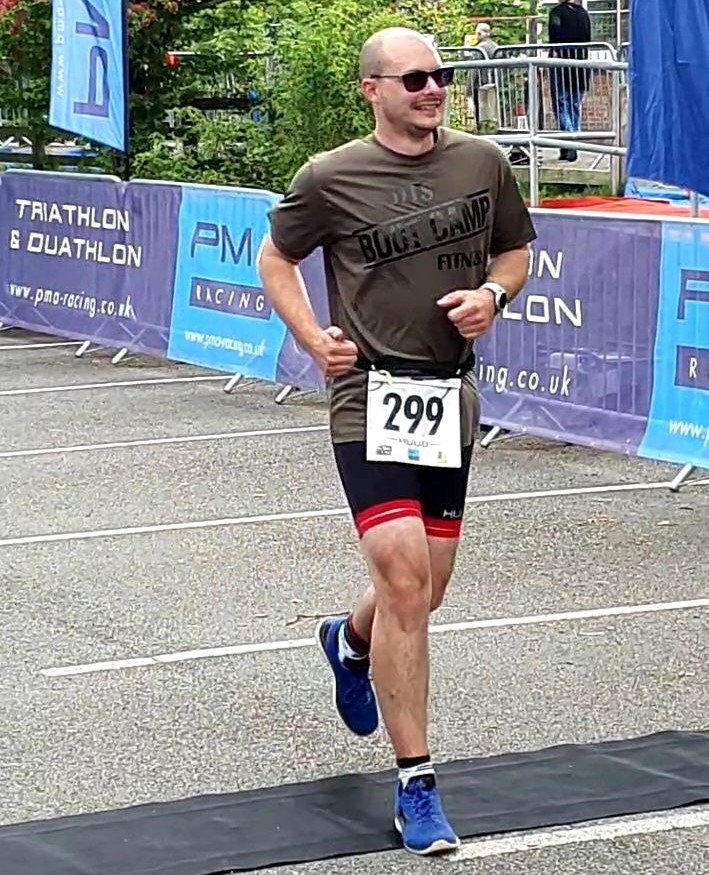
Thomas: At the finish line, you are welcomed by people that don’t know you, cheering you on. There were also members of our team who hadn’t started their swim yet. They took the time to cheer us on, which was a nice feeling. I recovered quickly after finishing, and I felt a great sense of achievement. At that point, I thought I could do it again to see if I could improve. It was all over so quickly, and that was a strange feeling, but I felt on top of the world.
Are you planning on competing in any sporting events in the future?
Mark: Yes, I have definitely caught the bug now, not necessarily for triathlons but for any activity that will challenge me mentally, improve my endurance and fitness and will allow me to enjoy my life with my kids and grandkids. My next event is the Matlock triathlon on August 29th. I am doing this event with a TAB board friend Phil Barley from Theatre Digs Booker (who is in the above picture looking puzzled at my pool to bike transition). I will then participate in the PMA Derby triathlon in Etwall on September 18th. Following that, I plan to do Ten Y Fan, a charity walk at Pen Y Fan in South Wales where you try and complete the Pen Y Fan route 10 times in 24 hours. Again, this is a monumental goal for me as hills aren’t my friend, but I will be happy to turn up and complete the event, even if it’s one single trip up and down the route. I can then build on those results in future events. Other future plans are Spartan races, hiking and orienteering events, as well as future triathlons to see how I have improved.
Thomas: Yes, I have been contemplating entering the Matlock triathlon this year, amd I have decided to take part next year in at least two events. I would like to get a new bike and push myself again. In the meantime, I cycle to work where I can and do other activities like DTS boot camp, which I enjoy. I don’t have a desire to get medals/ recognition to prove I have done something or have some paperwork to say I did it. I know what I did and achieved, which is enough for me. I literally got the t-shirt (It’s also more practical). I can do the triathlon stints myself to improve my times in preparation for the events in the coming months/ year.
Is there anything that you will be doing differently next time with regards to the preparation or on the day itself?
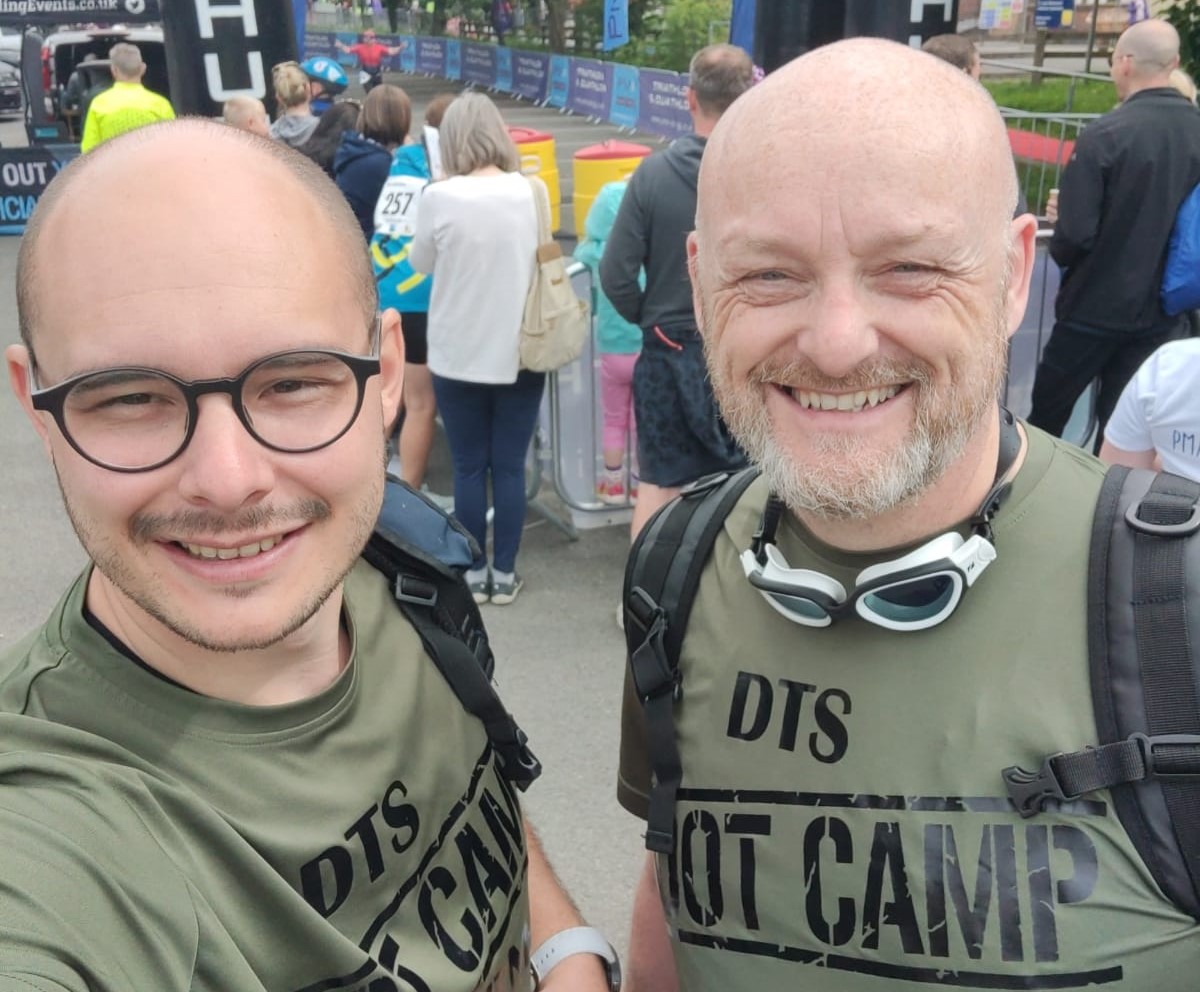
Mark: I think that the more I do, the more I will prepare. With an event like a triathlon, following a plan is essential to see how you are progressing. Plan the beginning of the day – parking, where the amenities are, where you change, where the toilets are. Prepare before the event. Wear your tri gear in practice, and make sure you understand how it feels to swim, cycle and run in it. Try out the routes beforehand. Cycle the route and work out the areas to push on, relax and recover, as well as any problems with the road surface that may catch you out on the day. Follow your plans and, very importantly, take plenty of rest. Don’t push too hard. Slower work builds greater stamina and endurance, which is my goal. Vary your training and make it fun. DTS Bootcamp does that for me as no session is the same, and you work at your pace.
I honestly don’t care if I finish last because I am still
one of those “athletes” who has taken their time to sign up, train and compete.
If you are injured though, stop.
If you sustain an injury, don’t train or complete the events. Seek medical advice and do your best to recover. Finally, enjoy discomfort, as you will push yourself and keep moving forward.
Thomas: I would rest more before. I nearly pushed it too hard leading up to the day and hurt my foot running more times in a day than I should have done. I made sure I did nothing for about 4 days leading up to it, giving it the best chance to recover. Luckily on the day, the run was the only bit I where I felt it more than the others, and I was able to do the best I could to keep going. You can never know what will happen, though and injuries are never planned. I would also like to invest in a new bike.
Do you have any advice for anyone who may want to take the leap and compete in their very first triathlon?
Mark: Do it. You will not regret it. Signing up was an achievement in itself. Completing it was the icing on the cake, no matter where I placed in the event. Train sensibly and within your boundaries and try and do this with other like-minded people. Do not underestimate the power of support and encouragement. Remember, though, one step further, this is the mantra of our DTS Boot camp, thanks to Amanda and Adam for burning that into our psyche.
Thomas: Just do it. I never thought I would be doing a boot camp, let alone a triathlon. Get over the fear of feeling like you will look silly in a Tri suit or that maybe one of the 3 disciplines is not a strong point of yours. It doesn’t matter what your pace is. Here is the thing: no one else cares what you do or how you look on the day. They are all there to try their best and just take part and set their own times. When you cross that line and realise you did it, you will feel great in whatever time you manage. The tiredness and pain will feel like nothing compared to the delight of your achievement.
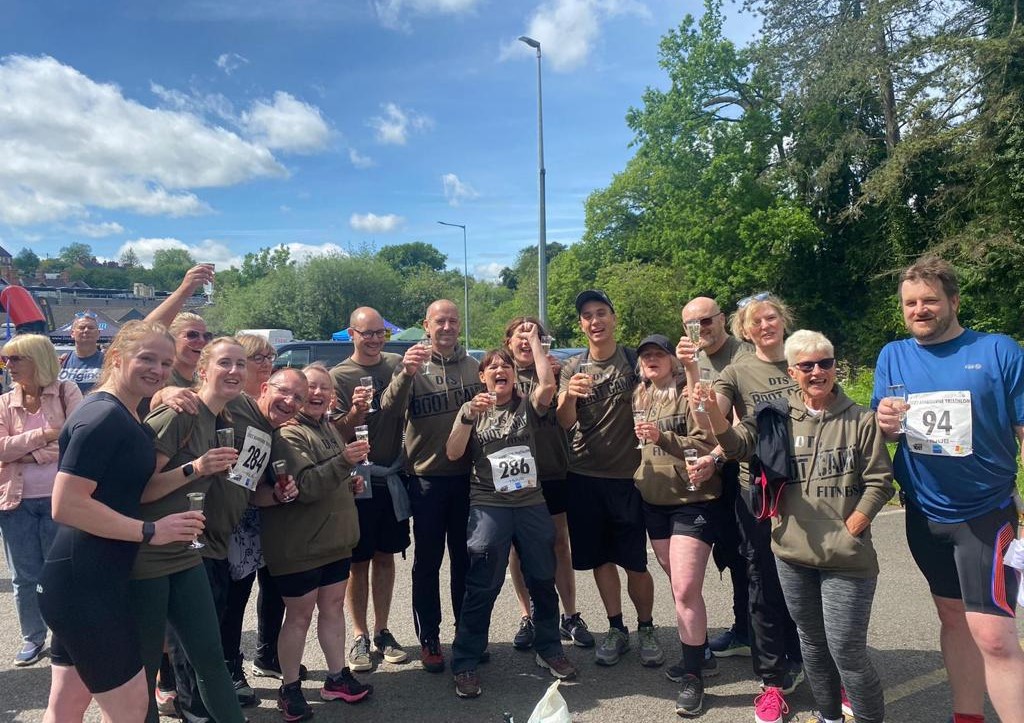
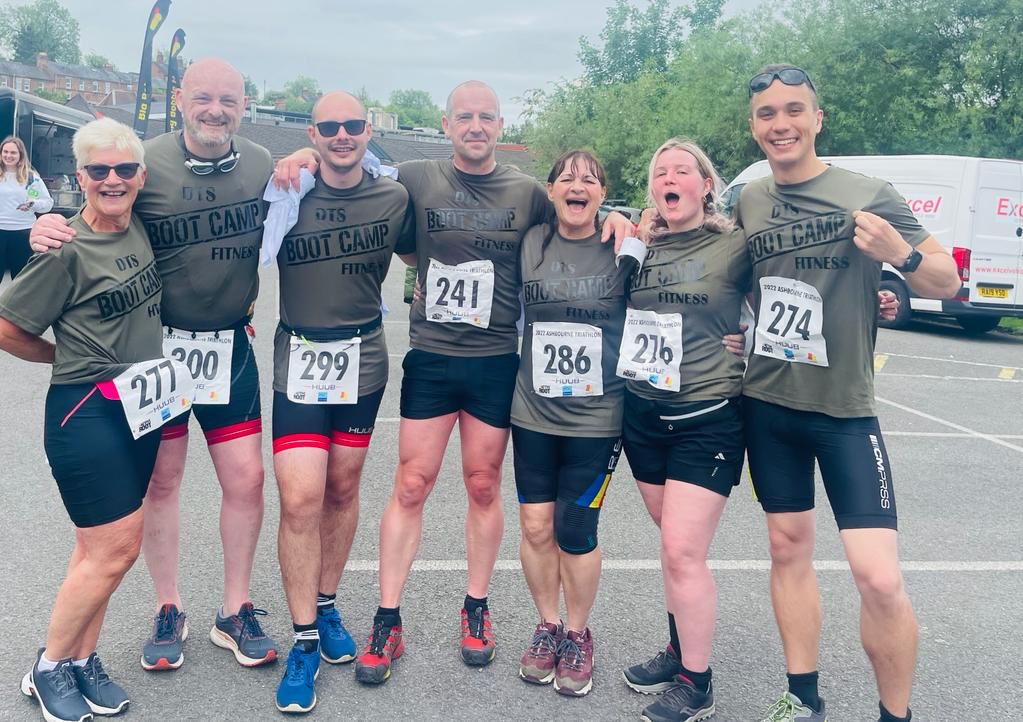
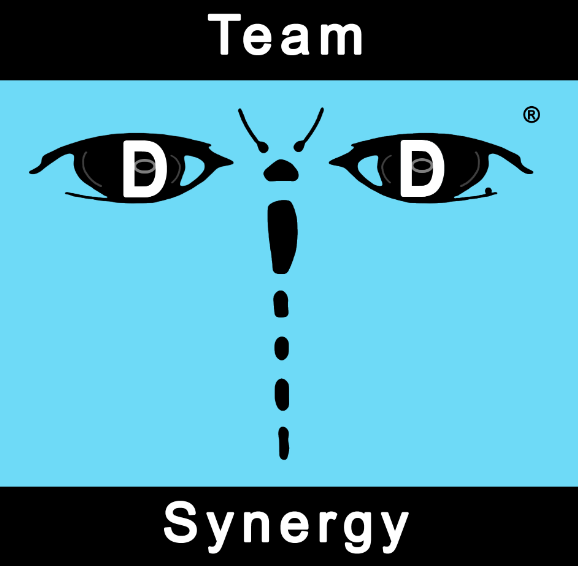
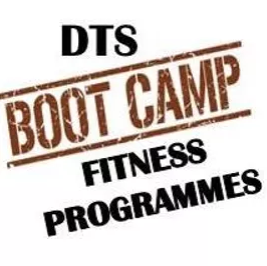
Dragonfly Team Synergy (DTS) provide fitness sessions for individuals, groups and businesses to build personal, business and team development.
THE DRAGONFLY
‘A fast, agile flyer with incredible vision and adaptability. It symbolises transformational change and self-realisation; the effect that Dragonfly Directors achieves for their clients.’
If you are interested in coming along to any of the boot camp sessions or booking a team-building day for your business, then find out more about DTS here: https://www.dts20.co.uk/
Access stress-free IT.
If you are looking for a dedicated team of IT experts, please give us a call, drop us an email or fill out a contact form linked below.

